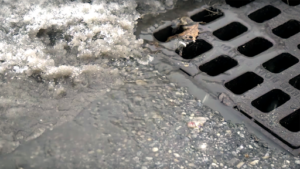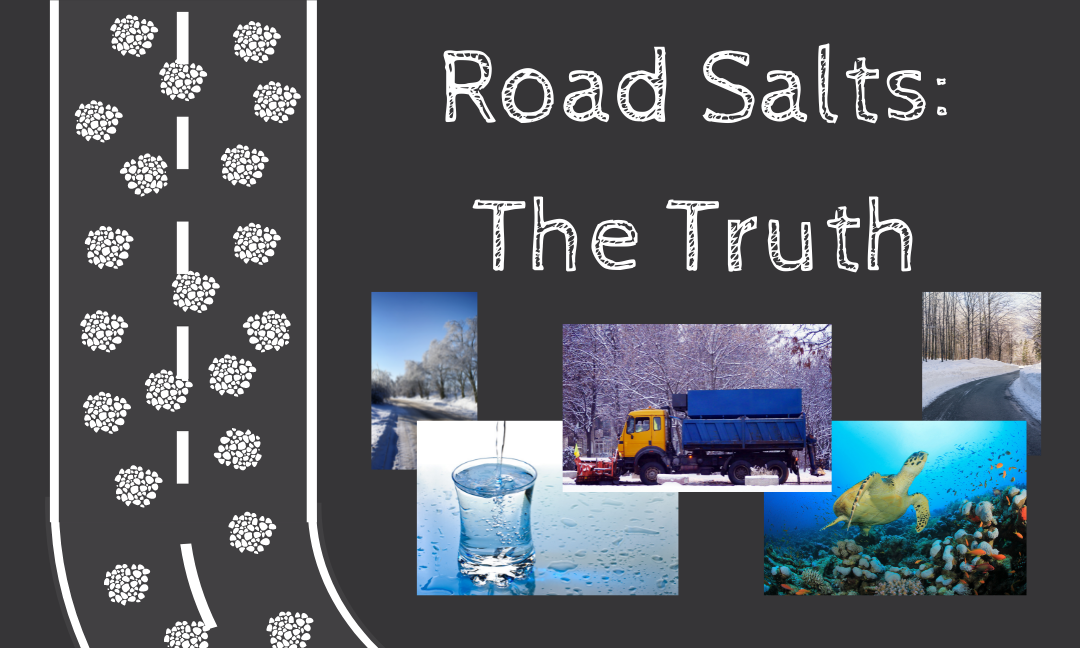Author: Mehavi Jeyabalan
Editor: Emily Cheng
Graphic Designer: Alessia Carpino
Publisher: Jumana Ismail
As the winter season progresses, so does the amount of snow and ice which lies thick on the roads. Such weather conditions make our daily lives increasingly difficult so to combat the issue, we use road salts. However, this may not be the best option for the environment and all who inhabit it, including us. Of course, we can change this by using safer alternatives.
Road salt provides us with the benefit of safe roads and sidewalks, as well as limits the amount of accidents. Thinking of it like this, it may seem that this compound helps save lives. However, the disadvantages tower over the advantages.

Road salts from roads and parking lots make their way into sewers, creeks, rivers, lakes and other bodies of water. Since road salts dissolve easily in water, groundwater and surface water, it is a common occurrence especially during winter and spring for salt levels to rise and become dangerous for wildlife. Due to the excessive amount of salt, aquatic animals struggle to survive. Freshwater animals are unable to live in saltwater conditions and die. For example, turtles die when their environment contains too much salt. Even their unborn or newly born hatchlings can not make up for the population decrease as salty water kills eggs and larvae of certain species like mussels. In many cases, food chains will be disturbed which will impact biodiversity. We can say goodbye to many of these species if we continue using road salts.
It may be hard for aquatic animals, but they do not face this trouble alone. Some mammals and birds also end up drinking this contaminated water which leads to devastating consequences. Birds can mistake the salt for something else, consuming it and often dying from even small amounts. Finally, animals like deer might be attracted to the salt along roads and cause accidents or collisions.

Not only are animals suffering, but we may be next. Road salt is not kind enough to stay out of our drinking water. In fact, Waterloo Region may be affected by tap water that tastes salty due to salt concentration levels (Salinity). If that doesn’t concern you, then be prepared to face the repercussions as it might just be in your next glass of water.
What can you do to help? I’m glad you asked. Well, you can start by reducing the amount of road salt you use. If you are feeling more ambitious, I suggest encouraging your municipality to minimize its use of salt. You do not need a lot of it to maintain roads which is similar to the saying: a little goes a long way. Maybe we can forget the salt altogether and replace it with some environmentally friendly options such as calcium magnesium acetate, potassium acetate and surprisingly, beet juice. The combination of salt brine and beet juice has proven itself with minor damage to the environment and its inhabitants. What more will we have to sacrifice before we change our ways?
Sources
https://www.landscapestore.ca/about-us/blog/item/benefits-of-using-rock-salt-this-winter
https://wwf.ca/stories/wildlife-dying-due-road-salt-must-stop/
https://wwf.ca/stories/wildlife-dying-due-road-salt-must-stop/
https://www.treehugger.com/environmental-effects-of-road-salt-1204123
https://www.greatlakesnow.org/2020/03/ap-scientists-testing-alternative-road-salt/ (picture)

